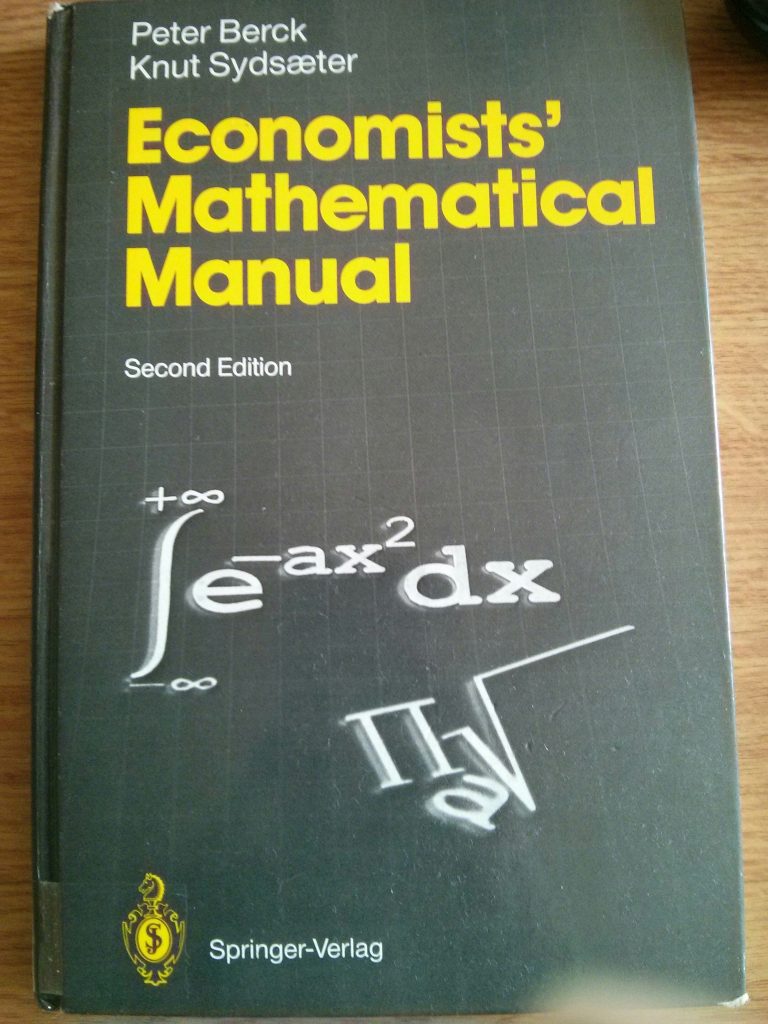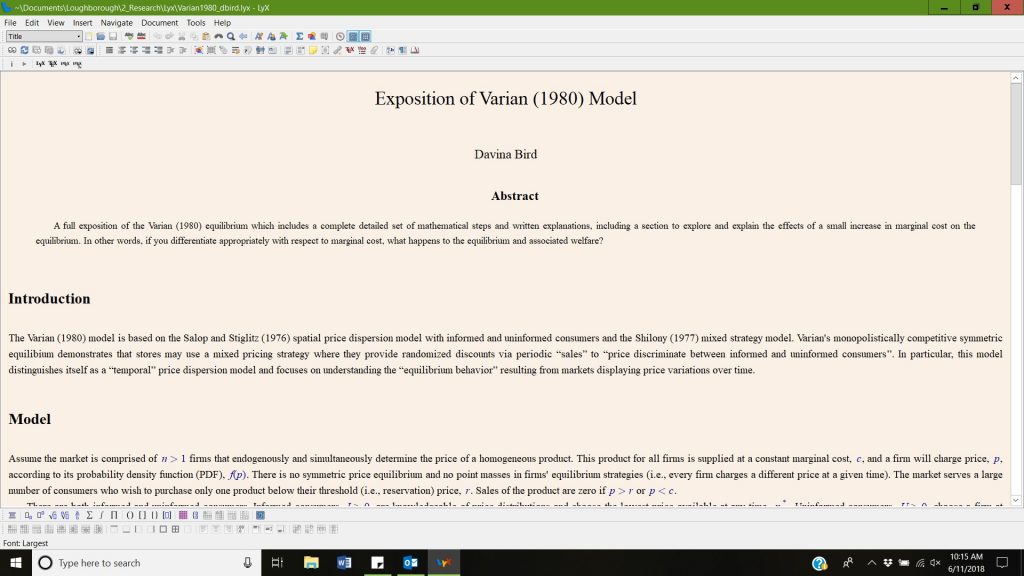Why a PhD?
In this blog, I talk about my reasons for trying to earn a PhD, what I am researching, and a key support for making the most of my studies at Loughborough University.
Why a PhD?
People decide to continue in higher education for many reasons and I am no different. While my journey to pursuing a PhD is more convoluted than some, ultimately what drew me to obtain a doctorate in economics is grounded in my personality type.
Working two years in an industrial setting made me realize that I do not do well in very rigid and hierarchical settings as I am too much of a free thinker who believes everyone is my equal. For some, having a lot of structure is reassuring, but for me it was stifling. I thrive on uncertainty and love to explore the boundaries of what is thought to be possible. There are limited spaces in industry and government that encourage a work setting conducive to my personality type and so I decided to go back to university and earn a PhD with the hope that I could further my career in research, an endeavor that by its nature frequently requires an ability and willingness to explore the unknown.
Since my family is historically working-class, and I was not able to self-fund, I looked for studentships in which I was interested. From experience and the advice of others, I knew it was better to find a topic for which I felt some degree of passion as this is often the key to being successful. When I was offered a studentship at Loughborough University that was based on the use of behavioral economics, industrial organization and game theory, I was excited as these subject areas had fascinated me throughout my earlier studies.

Research Review
While most of economic theory in the last century is based on the idea that people are rational and self-interested actors, behavioral economists like the 2017 Noble Prize winner Richard Thaler relaxed this assumption and asked questions about the economic impacts when people do not behave in a way that is traditionally considered logical. Given that people, and firms, are not always predictable in how they act, industrial organization examines the effects of market changes on the competitiveness and efficiency of the economy. Game theory is important to understand how different economic stakeholders make decisions and fundamentally is focused on analyzing the potential strategic outcomes of an interaction between two or more actors.
My particular research, drawing on all three of these approaches, addresses how “prosumers” (i.e., producers and consumers) change their behavior(s) in response to a given policy stimulus. The goal of the research is to enhance the set of theoretical tools that enable policymakers to assess a priori the impact of a given policy to determine if it will achieve its stated objective. Applied correctly, this type of research will prevent costly policies from being passed that have unintended consequences or that do not achieve the stated policy goal(s). This research will also assist in the formation of policies that enhance market competition (i.e., leads to lower priced and better-quality products) while not having a detrimental impact on society (i.e., companies and everyday people are not made worse off than before the policy).

Support for Doctoral Researchers
As I have studied and taught at a few higher education institutions, I have learnt that the best way to evaluate a university is not according to a single criterion, but rather by the variety and amount of opportunities and services it offers to students willing to make the, sometimes very little, effort. Since arriving at Loughborough University, my initial positive impression of the quality of educational services and support has only increased. Of particular importance to me as a PhD student (and doctoral researcher) are the services offered by the Doctoral College.
The Doctoral College staff have a challenging workload as they offer over 100 training workshops for professional development to doctoral researchers throughout the year on everything from literature reviews to networking, as well as more specialized topics like non-parametric statistics. When I arrived on campus, the Doctoral College had an induction for all postgraduates to help us understand what services are available through them as well as offices like Career Services. They also send out a regular e-mail bulletin to all PhDs with information on different opportunities available, whether it is presenting at the informal and in-house Café Academique or an announcement about an upcoming activity of potential interest (for example: I recently went to a speech by a Nobel Prize winner about Brexit and immigration).
And last, but certainly not least, I cannot express my gratitude enough for the Graduate Hub, where free tea and coffee are provided to postgraduates courtesy of the Doctoral College. Many thanks to the staff at the Doctoral College for your hard work on behalf of Loughborough Uni’s doctoral researchers!
Student Life
Find out what makes 'The Loughborough Experience' by reading our student blogs.